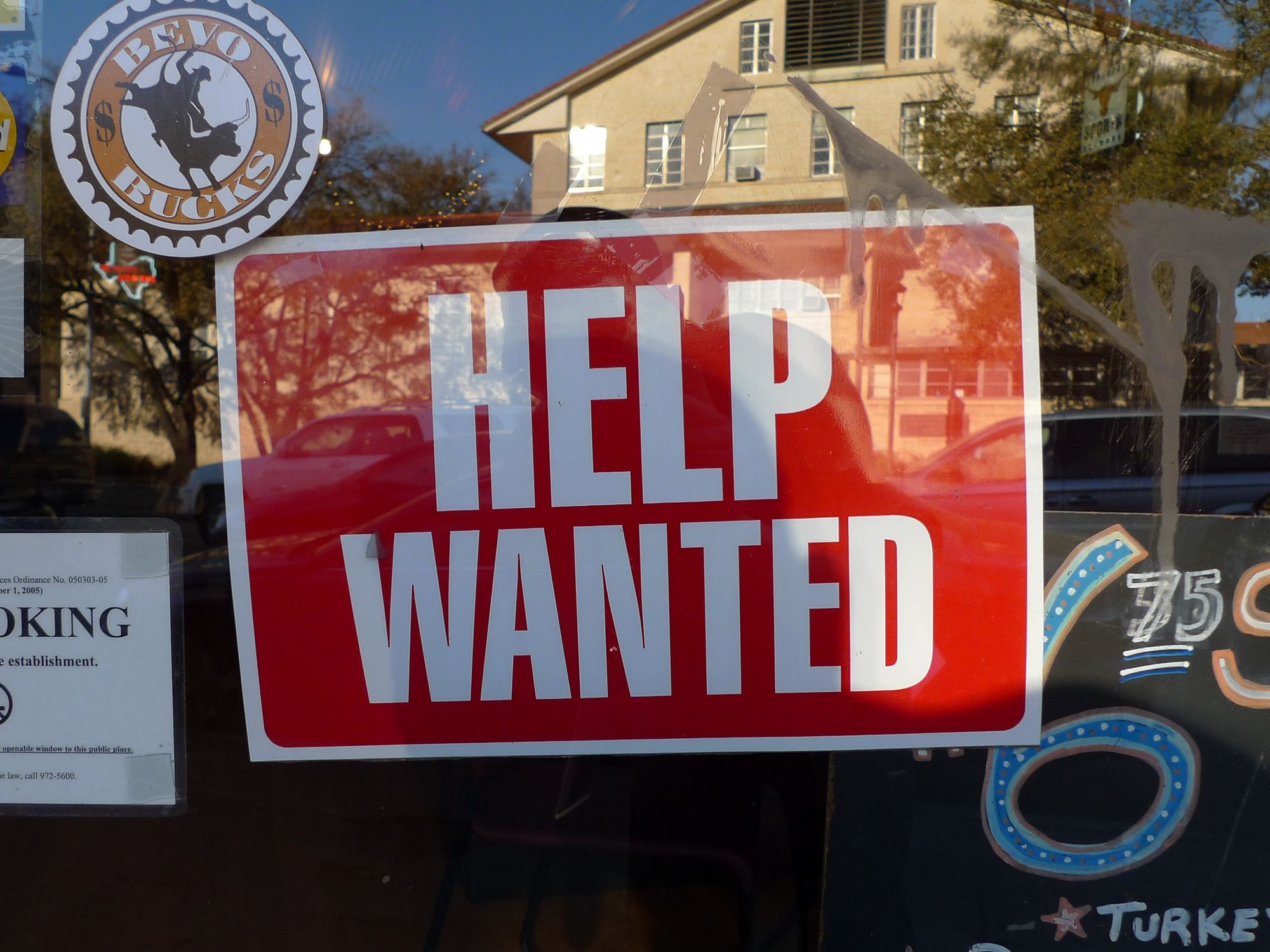The COVID-19 crisis has many on the left debating how to improve the welfare state and build working-class power post-pandemic. Two ideas receiving attention are a universal basic income (UBI) and a job guarantee (JG). Both function as animating political demands, due in part to their simplicity and ostensibly radical potential. However, the policy specifics of actually instituting a UBI or a JG leave a lot to be desired.
We need clarity as much as captivating demands.
What Is A Universal Basic Income?
Broadly, a UBI is a cash payment issued to every adult citizen and permanent resident. UBI advocates claim the policy could provide an unconditional income free of means-testing or work requirements. Though not technically a UBI, the current Canada Emergency Response Benefit (CERB) has undoubtedly renewed interest in the idea.
The first thing to note is that there’s a multiplicity of UBI proposals, from the left, right and centre. While some on the left think UBI could reduce workers’ reliance on waged labour and compensate for unpaid reproductive work, those on the right imagine universal cash payments as a way to cut public services and make people more market dependent.
However, one aspect which ties various UBI proposals together is their funding model. UBI proponents — whether right-wingers advocating a negative income tax or leftists proposing a tax and transfer system — imagine a program funded through income taxes. In practice, this would mean that people lower on the wage distribution would be net beneficiaries of the program, while those higher up would be net contributors. Somewhere in the middle would be people for whom the UBI would be ‘revenue neutral,’ meaning they’d pay back in income tax the same amount that they receive as a UBI.
Alternatively, others envision pairing UBI with a social wealth fund. UBI payments under this model would draw from the social wealth fund’s returns rather than from tax revenue. Instead of the rich collecting passive income from capital assets, the public would receive a social dividend from the collectively held assets in the fund. At present, socializing ownership in this way — a worthwhile but considerable political task — is not on the radar of Canadian left politics. And even if it was, it’s reasonable to argue that such a fund should finance robust public services before distributing a social dividend.
What Do We Really Want from UBI?
It’s instructive to take a step back and ask what problems we’re trying to solve through a UBI. Persistently low productivity growth suggests that automation doesn’t pose the threat to jobs that many UBI advocates claim. Really, UBI is directed at two interconnected issues: unemployment and our dependence on paid work. Unfortunately, it would be a poor solution to both.
For all the conjecture about its potential to reduce poverty, UBI is primarily about providing cash to people not performing paid work. The majority of people not working, however, are children and the elderly. Canada has income transfers targeted at these populations, which, though they could be improved, are fairly effective at reducing poverty. Therefore, basic income is primarily directed at unemployed working-age adults.
It follows that UBI is essentially a universal unemployment benefit that continues even when a person is employed. UBI advocates imagine that because the payment is universal, it will somehow be more sufficient than current unemployment and social assistance benefits. Nonstandard workers, such as freelancers and the solo self-employed, might also find UBI appealing because of its lack of eligibility rules.
Liberal and Conservative governments have eroded Employment Insurance (EI), which now covers fewer than half of workers who experience unemployment. The program’s eligibility rules are prohibitive, and its replacement rate of 55 per cent of previous earnings is embarrassing when compared to more generous European unemployment programs. Sweden and Denmark, for example, both offer wage replacement rates of more than 70 per cent of prior earnings. The sorry state of EI necessitated the creation of the CERB during this pandemic as an emergency measure to assist the growing number of workers shut out of unemployment insurance.
Provincial social assistance and disability support programs are even more disgraceful — rates are punishingly low, and recipients are often subjected to degrading surveillance and “work-ready” programming.
Basic income advocates are right to oppose low rates and stringent means-testing for unemployment and welfare benefits. However, nothing about improving these income support programs necessitates a UBI. Given UBI’s likely enormous cost and the considerable risk that the right could use basic income as a means to cut public services, we’re better off fighting for generous unemployment compensation and higher social assistance rates.
Part of UBI’s appeal seems to stem from how susceptible EI and social assistance have been to political attack. However, the claim that UBI would be more politically durable because of its universal appeal is hugely overstated. The capitalist class will be no more generous just because welfare is now called UBI.
What about the broader claim that UBI can provide people greater freedom by reducing their dependence on paid work? According to the late sociologist Erik Olin Wright, a UBI set high enough could help achieve the more utopian objective of transcending capitalism’s forced dependence on waged labour.
Although a lofty objective, it’s unlikely to materialize. As left critics of UBI point out, under present political conditions, we’re likely only to see a stingy basic income that ensures a ready supply of low-wage, precarious workers. Without struggles to improve the quality and pay of existing jobs, a UBI program could simply be a sop to low-wage employers.
The left has long understood that class struggle also involves improving life outside of work. We can achieve this through better and more universal unemployment and welfare benefits, greater access to paid leaves, more vacation and reduced working time.
We should demand a dignified and materially adequate life outside of paid labour. But this doesn’t require a UBI.
A Job Guarantee?
A JG is sometimes included alongside, but usually counterposed, to UBI. As with basic income, job guarantee proposals vary. In the most popular JG plan, a federal job program would guarantee employment to anyone unable to secure other private or public sector work. JG jobs would pay the minimum wage and offer a minimum benefit package.
Like UBI, a job guarantee generates support because of its straightforward pitch: everyone who wants a job should have one, regardless of whether it can be provided by the market.
Additionally, job guarantee advocates often position the JG as a means through which to achieve other progressive political goals. A JG has been advanced as part of a framework to address climate change through a Green New Deal, as a mechanism to tackle racial injustice and inequality, as a means to improve labour standards throughout the economy and as a way to maintain or boost economic demand while narrowing wage and income inequality.
The job guarantee, it seems, is many things to many people. And although writers on the left have criticized UBI extensively, there’s a surprising lack of critical evaluation of what a job guarantee might actually look like in practice.
What Do We Really Want from a Job Guarantee?
Like UBI, the job guarantee appears as a social and economic panacea in the writing of some of its advocates. However, JG writers most commonly claim a job guarantee can do three things: maintain full employment; strengthen workers’ overall bargaining power in the economy; help solve the climate crisis by creating green jobs.
As neoliberal capitalism moved away from policies to generate full employment after the inflationary crises of the late 1970s, some left economists looked for ways to solve the full employment-inflation trade-off. This is the origin of the idea of guaranteeing paid work through a government “employer of last resort” program. The notion, put forward by economist Hyman Minsky, was that the government could simultaneously maintain full employment and stabilize the economy through a job program that grew and shrank according to the business cycle.
But this is where the most glaring contradiction appears. Minsky and those who followed him insisted that the wages of JG jobs would be kept low enough to not produce wage-induced inflation in the private sector. If private sector workers demanded too much, employers could always hire low-wage workers from the JG program. However, somewhere along the line, contemporary JG advocates got the idea that a job guarantee could do the opposite: that it would improve the bargaining power of all workers by eliminating unemployment.
Insofar as contemporary JG advocates believe a job guarantee that sets a higher minimum wage can avoid this problem, they are both mischaracterizing a central feature of the JG — that it won’t allow private sector workers to bargain up wages — and committing the same error as UBI proponents: thinking a policy fix can be an end-run around class struggle.
As with UBI, the job guarantee is ultimately about addressing unemployment. But insofar as a JG program would simply pool the unemployed in a minimum wage make-work scheme, it would ‘employ’ these workers only in the most superficial sense. And if it functioned according to its original design, a job guarantee would contain, not enhance, the power of private sector workers to demand more.
Although JG writers claim the program would not be another form of workfare, it’s hard to imagine a job guarantee program under present political conditions not functioning as a welfare-to-work scheme. Neoliberal attacks on social supports have been characterized equally by cuts to income supports and workfare. A job guarantee program runs the risk of continuing this trend. Though left JG enthusiasts argue that the program shouldn’t be used to coerce social assistance recipients into paid work, in the hands of neoliberal politicians it could very well operate in this way. The JG is no less amenable to neoliberalism than a UBI.
What about the JG’s potential as a green jobs program? This is perhaps the most surprising claim of all. There’s no question that transitioning away from fossil fuels and averting the climate crisis will necessitate a massive expansion of public sector employment. But thinking this can be achieved through a minimum wage job guarantee program only confuses matters. Because the JG is fundamentally about guaranteeing employment, it must not include any skills requirements and must provide work to all those who apply.
The green jobs necessary for a just transition, however, will involve considerable skill and training. These need to be secure, adequately paid public sector jobs. A job guarantee, according to its principal policy architects, is also by definition a temporary employment program. JG jobs, as economics professor L. Randall Wray argues, would grow and contract according to the performance of the private sector labour market. A green transition needs good public sector employment, not temporary minimum wage workfare.
Some writers imagine JG workers also working in the caring economy. Canada desperately needs publicly funded eldercare and universal childcare, along with greater investment in health and education more broadly. Yet a job guarantee program could not be depended upon to staff these highly skilled caring jobs. Moreover, the claim that a JG program with no skills requirement could meet these needs reinforces the sexist and racist argument that such jobs aren’t skilled.
We Can Do Better
Those advocating universal basic income and a job guarantee often point to serious problems with our current political economy and welfare state. In the context of a pandemic, which has necessitated imposing levels of un- and underemployment not seen since the Great Depression, debating how to respond to these issues is as urgent as ever. Capitalism is in crisis and without a fight the working-class will bear the burden.
Although bold demands like UBI and a JG might pique political interest and galvanize a certain level of public support, they aren’t good left policy options. Demands for better income supports and well-paying public sector jobs might not sound quite as provocative as UBI and a job guarantee, but they get us closer to the future society we want and deserve.







